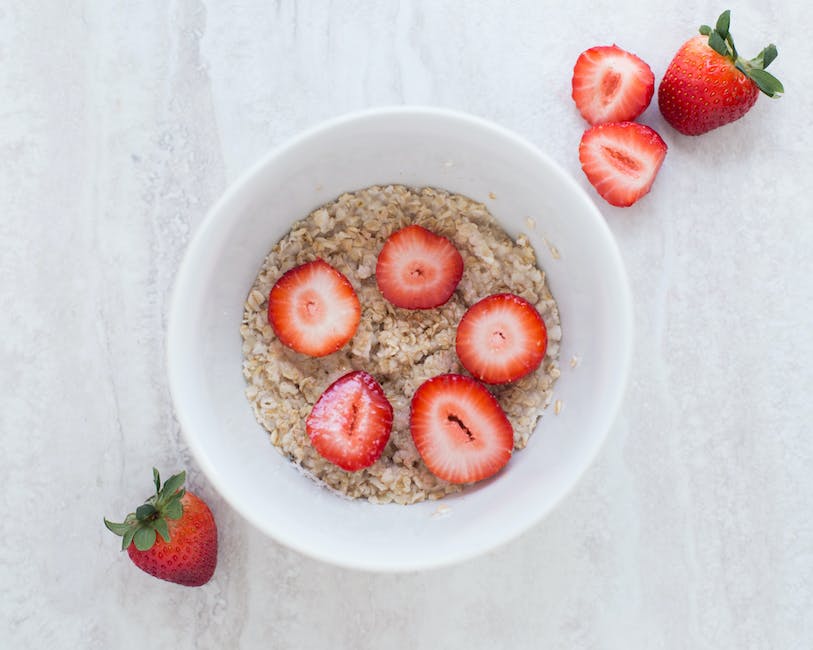Is Oatmeal Gluten-Free? Unveiling the Truth for Health-Conscious Foodies
Are you on a quest to maintain a gluten-free diet but find yourself puzzled at the breakfast aisle, questioning whether oatmeal can be part of your routine? You’re not alone. The gluten-free lifestyle has become a necessity for many and a preference for even more. In this comprehensive guide, we’ll dive deep into the world of oatmeal, unraveling the complexities of gluten content and how you can safely include this wholesome food in your diet. Get ready to discover the ins and outs of gluten-free oatmeal, tips for avoiding cross-contamination, and delicious ways to enjoy this nutritious staple.
What is Gluten and Why is Oatmeal’s Gluten-Free Status Confusing?
Understanding Gluten
Before we delve into the specifics of oatmeal, let’s clarify what gluten is. Gluten is a group of proteins found in grains such as wheat, barley, and rye. It’s responsible for the elastic texture of dough and is a common ingredient in many food products.
The Oatmeal Conundrum
Oatmeal, on its own, does not contain gluten. However, the confusion arises due to the high risk of cross-contamination with gluten-containing grains during harvesting, processing, and packaging. This makes it challenging for those with celiac disease or gluten sensitivity to know if their oatmeal is truly gluten-free.
How to Ensure Your Oatmeal is Gluten-Free
Choosing Certified Gluten-Free Oatmeal
To enjoy oatmeal without the gluten worry, look for products that are certified gluten-free. These have been tested and verified to contain less than 20 parts per million (ppm) of gluten, which is the safe threshold for most people with gluten intolerance.
Understanding Cross-Contamination Risks
Even with gluten-free certification, it’s essential to understand the potential for cross-contamination. If you’re highly sensitive, consider brands that use dedicated gluten-free facilities to minimize this risk.
The Health Benefits of Including Gluten-Free Oatmeal in Your Diet
Nutritional Advantages of Oatmeal
Oatmeal is a powerhouse of nutrients, offering a rich source of fiber, particularly beta-glucan, which can help lower cholesterol levels. It’s also packed with vitamins, minerals, and antioxidants.
Gluten-Free Oatmeal for Digestive Health
For those on a gluten-free diet, oatmeal can be a soothing option for the digestive system. Its fiber content aids in digestion and can help regulate bowel movements, making it a smart choice for gut health.
Common Questions About Gluten-Free Oatmeal
Can Celiacs Eat Oatmeal?
Celiacs can eat oatmeal as long as it’s certified gluten-free. It’s crucial to read labels and be aware of the potential for cross-contamination.
Is Oatmeal Gluten-Free by Nature?
Yes, oats are naturally gluten-free. The issue arises from the proximity to gluten-containing grains during processing.
Delicious Ways to Enjoy Gluten-Free Oatmeal
Creative Toppings and Mix-Ins
Transform your gluten-free oatmeal with a variety of toppings like fresh fruits, nuts, seeds, and even a drizzle of honey or maple syrup for added sweetness.
Savory Oatmeal Recipes
Who says oatmeal has to be sweet? Explore savory options by adding ingredients like sautéed vegetables, cheese, or an egg on top for a protein boost.
Conclusion: Embracing Gluten-Free Oatmeal with Confidence
In summary, oatmeal can be a nutritious and delicious part of a gluten-free diet when you take the right precautions. By choosing certified gluten-free oatmeal and being vigilant about cross-contamination, you can enjoy this versatile food without worry. Whether you prefer your oats sweet or savory, there are endless ways to customize your bowl to fit your taste and dietary needs. So go ahead, start your day with the comforting warmth of oatmeal, and rest assured that you’re fueling your body with a safe, gluten-free option.


